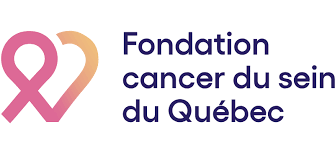
The integration of a new genetic analysis (PRS) should better stratify the risk of breast cancer in these women at genetic or familial risk, in order to offer them more personalized care.
Project summary
Breast cancer is the most common cancer in women in Quebec and the second leading cause of cancer death. Mammography screening every two years is offered to all women between the ages of 50 and 74. Earlier or more intensive monitoring, or even preventive surgery, may be proposed for women at risk, due to their family history or a genetic hereditary predisposition. The integration of genomic data (polygenic risk score), in addition to other risk factors, should make it possible to better determine the cancer risk of these women in nearly one in two women at risk, and to offer them personalized care adapted to their actual risk of breast cancer. Women at risk would be better monitored, allowing earlier detection of their cancer, improving their prognosis and quality of life, while avoiding unnecessary screening for women at low risk. To this end, we will validate a genetic analysis of the score in the laboratory of the CHU de Québec, and integrate it into the oncogenetics clinic. Ultimately, this approach will be implemented within the framework of care in Quebec.
Project team

Principal Investigator
Faculté de Médecine, Département de pédiatrie
Université Laval

Project coordinator
Centre des Maladies du sein
Hôpital Saint-Sacrement

Co-Investigator
Centre de recherche CHU de
Québec–Université Laval

Co-Investigator
Faculté de médecine, Département de médecine moléculaire
Université Laval

Collaborator
Centre des maladies du sein
Hôpital Saint-Sacrement

Collaborator
Faculté de Médecine
Université de Sherbrooke

Research professional
Centre de recherche CHU de
Québec–Université Laval

Master’s student
Université Laval
Partenaires
Have questions about the project ?
Contact the project team


